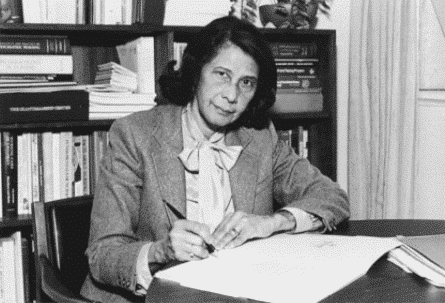Apple Co-Founder Steve Jobs died this week, and there’s been a lot of talk about his life and his work. This was clearly a man who knew what he wanted and went out and got it (or, in his case, made it). I am often intrigued by how much we, as a society, hold a creative maverick in such high regard when, in everyday life, an outspoken visionary is rarely so well-received. We often don’t want someone telling us that something could be done better if we only did x, y, or z. The implication is that we’re not doing it right now, and no one wants to hear that. A visionary only looks smart and groundbreaking after she or he has circumnavigated the inevitable resistance to their idea(s)– keep in mind that Jobs himself was actually ousted from his own company back in the 1980s.
Here at IF, we routinely ask participants in our discussion to think outside whatever boxes they might find themselves in. The challenge is, of course, that most of us do not even realize we are in a particular box. It is up to the facilitator to gently point this out and thereby challenge participants to think differently. For that to really work, a group must get to a place in which there is a certain level of trust and security (safety). No one likes to think they’re in a box, as we all imagine ourselves to be one of those creative mavericks. Once a group gets to that point of mind-expansion borne by a certain level of trust in one another, neat and truly creative ideas can emerge. It can take months to get to that point, though, which is why we put such value in the ideas that our panels generate– as a collective endeavor of deepening consideration. Someone happening by later to add an idea that seems missing or to highlight a particular possibility has not shared in that collective creative energy and may thus overlook the work that a panel has done. Of course, it is also possible that a panel might have a significant blind spot, perhaps because a facilitator doesn’t quite know how to draw participants to a deeper place of creativity or maybe because there wasn’t enough of a range of experience and/or perspective on the panel.
Steve Jobs was a maverick creator, which means that he did much of what he did largely on his own. As much as others might have dismissed his dominance, he might just as intently dismissed what those others might have had to add. Sure, he probably “engaged” those under his employ, but he always knew what he wanted– saw it plain and clear. The unfortunate dimension of his sort of energy is that it is probably pretty lonely. One never really connects with others who could reveal your blind spots and take you deeper. To do so is risky–others will see the boxes you live in or might notice that your ideas are not so complete and brilliant all the time. But, I suspect he missed out on the strength that can yield from really inviting others in to collaborate on your vision–or to collaborate on constructing a shared vision. At IF, we realize that one’s project is only as strong as one’s panel and one’s ability to actualize their creative energies.



